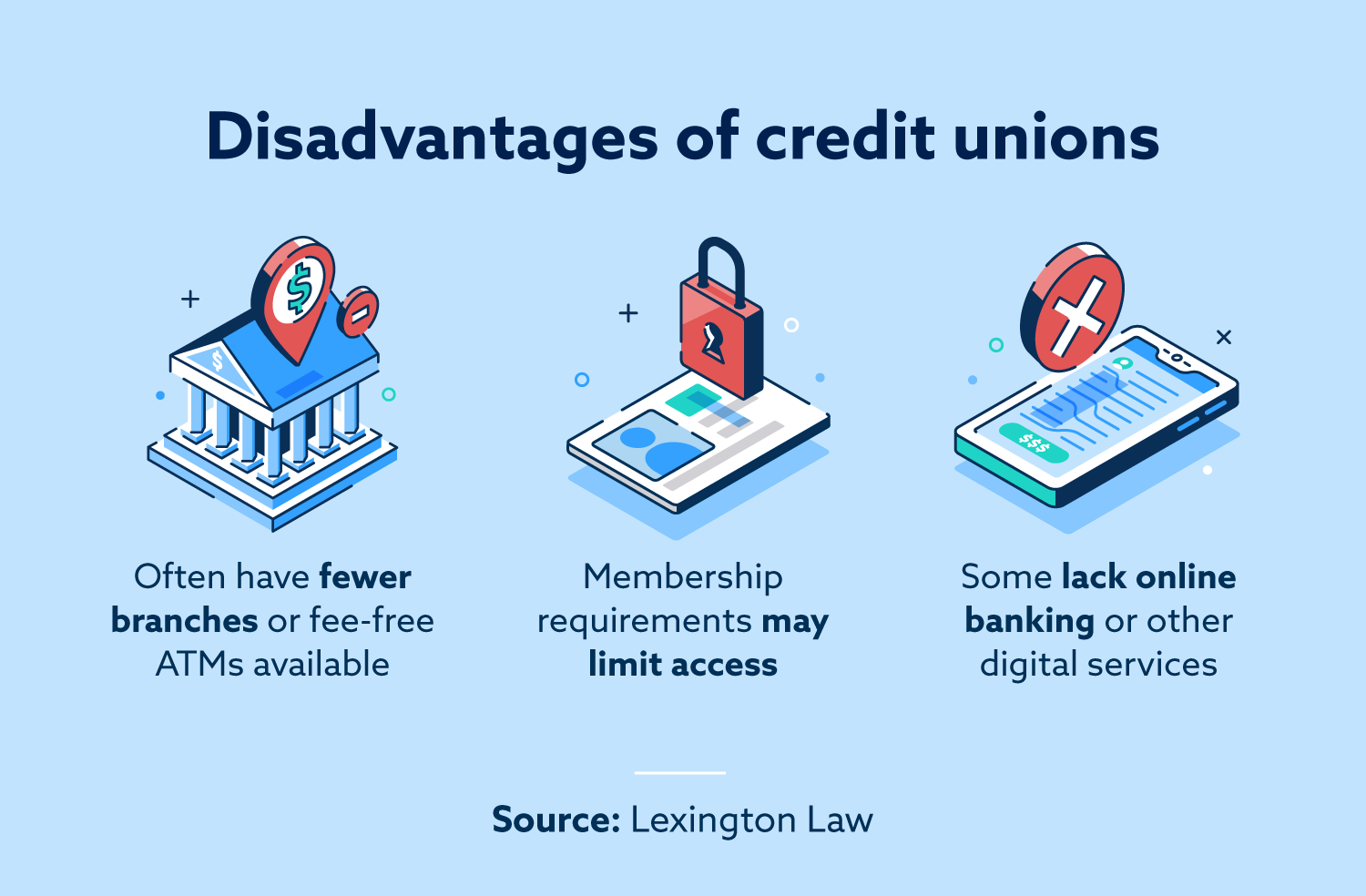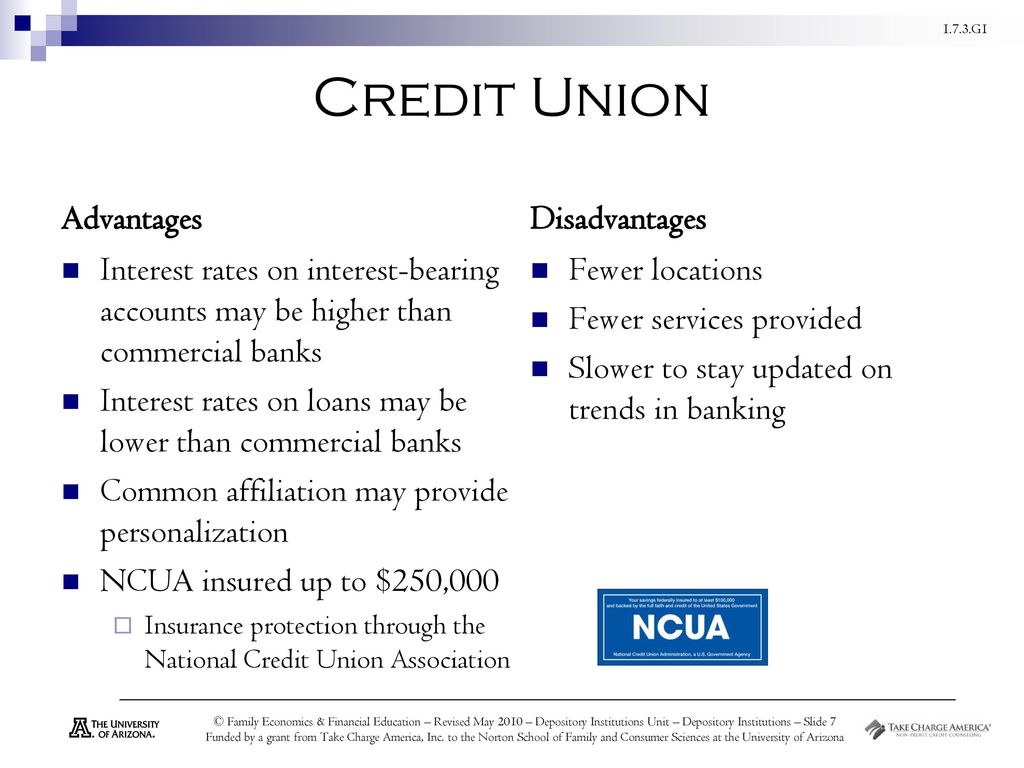The Ultimate Guide to Recognizing Debt Unions

Credit score unions stand as distinct financial entities, rooted in concepts of common assistance and member-driven operations. As we browse via the intricacies of credit unions, an insightful journey waits for to drop light on these member-focused institutions and how they differ from typical financial institutions.
What Are Lending Institution?
Lending institution are member-owned banks that use a variety of banking services to their members. Unlike conventional financial institutions, debt unions operate as not-for-profit organizations, suggesting their key focus gets on serving their members as opposed to taking full advantage of revenues. Members of a cooperative credit union usually share a typical bond, such as helping the same company, coming from the exact same neighborhood, or belonging to the very same company.
Among the key advantages of credit score unions is that they usually provide greater rates of interest on cost savings accounts and reduced passion prices on financings contrasted to financial institutions. Hybrid Line of Credit. This is since credit score unions are structured to benefit their members directly, enabling them to pass on their revenues in the form of much better prices and less costs. In addition, cooperative credit union are understood for their individualized customer care, as they focus on developing relationships with their participants to comprehend their one-of-a-kind monetary needs and goals
Background and Evolution of Lending Institution
The origins of member-owned economic cooperatives, understood today as lending institution, trace back to a time when communities looked for options to conventional banking organizations. The principle of credit rating unions originated in the 19th century in Europe, with Friedrich Wilhelm Raiffeisen usually credited as the pioneer of the participating financial motion. Raiffeisen started the first recognized cooperative credit union in Germany in the mid-1800s, highlighting community assistance and self-help concepts.
The development of lending institution continued in North America, where Alphonse Desjardins developed the very first cooperative credit union in Canada in 1900. Soon after, in 1909, the first U.S. credit rating union was formed in New Hampshire by a group of Franco-American immigrants. These early debt unions run on the fundamental concepts of common aid, autonomous control, and member possession.
Gradually, lending institution have expanded in appeal worldwide as a result of their not-for-profit framework, concentrate on serving participants, and offering competitive monetary items and services. Today, credit rating unions play an essential function in the economic industry, supplying easily accessible and community-oriented financial options for people and services alike.

Membership and Qualification Criteria
Membership at a credit rating union is typically limited to people fulfilling specific eligibility criteria based on the institution's starting principles and regulatory needs. These requirements typically consist of aspects such as geographical location, work condition, membership in specific organizations, or association with certain teams. Credit rating unions are known for their community-oriented approach, which is mirrored in their membership requirements. Wyoming Credit Union. Some debt unions may only offer individuals that live or function in a specific area, while others might be customized to employees of a certain firm or members of a certain organization.
Furthermore, credit scores unions are structured as not-for-profit companies, meaning that their key objective is to serve their members instead than produce revenues for shareholders. Visit Your URL This emphasis on member solution usually translates into even more personalized interest, lower fees, and competitive rates of interest on finances and financial savings accounts. By fulfilling the qualification criteria and becoming a participant of a cooperative credit union, individuals can access a series of economic products and solutions customized to their particular demands.
Services and Products Offered
One of the vital facets that establishes credit scores unions apart is the diverse range of financial product and services they provide to their participants. Lending institution commonly give conventional financial solutions such as cost savings and examining accounts, car loans, and bank card. Members can likewise benefit from financial investment solutions, including retired life accounts and economic preparation assistance. Numerous cooperative credit union provide competitive rate of interest on financial savings accounts and loans, as well as lower find more info costs contrasted to typical financial institutions.
Furthermore, lending institution frequently supply practical online and mobile financial choices for participants to quickly handle their finances. They might use rewards such as shared branching, allowing participants to access their accounts at various other cooperative credit union across the country. Some credit report unions also give insurance policy items like vehicle, life, and home insurance policy to assist members safeguard their assets and loved ones.

Benefits of Financial With Cooperative Credit Union
When taking into consideration banks, checking out the benefits of financial with lending institution discloses special advantages for participants looking for personalized service and affordable prices. One substantial advantage of cooperative credit union is their concentrate on tailored client service. Unlike huge financial institutions, cooperative credit union are member-owned and focus on building strong relationships with their participants. This suggests that cooperative credit union staff often have a deeper understanding of their participants' monetary demands and can supply customized services to assist them accomplish their objectives. Additionally, cooperative credit union are recognized for providing affordable rate of interest on car loans and cost savings accounts. Because they are not-for-profit companies, credit score unions can frequently give reduced funding rates, greater savings read the article rates, and reduced costs contrasted to traditional banks. This can lead to significant expense savings for members in time. Overall, banking with a lending institution can supply a more individualized, affordable, and member-centric economic experience.
Verdict
In verdict, credit score unions stand out as member-owned financial establishments that focus on offering their members over making the most of earnings. With origins dating back to 19th century Europe, credit unions follow concepts of shared support and participant possession.
Credit unions are member-owned monetary organizations that supply a range of banking solutions to their members. The idea of credit score unions stem in the 19th century in Europe, with Friedrich Wilhelm Raiffeisen usually attributed as the leader of the participating financial motion.The development of credit history unions continued in North America, where Alphonse Desjardins established the first credit score union in Canada in 1900. Credit rating unions commonly supply conventional banking services such as savings and inspecting accounts, car loans, and credit scores cards.When considering financial organizations, exploring the advantages of banking with credit scores unions exposes distinct benefits for participants looking for individualized service and competitive rates.